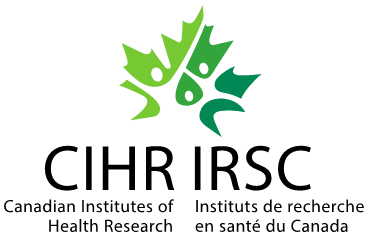With increasing adoption of high-throughput sequencing technologies to infectious disease surveillance and outbreak investigations, genomic epidemiology (combining pathogen genomics data with epidemiological investigations to track the spread of infectious diseases) is poised to change the practices of public health and infection controls and provides unprecedented amount of data for pathogen evolution studies.
This 5-day course from CBW provides an introduction to genomic epidemiology analysis followed by hands-on practical tutorials demonstrating the use of selected analysis tools. The tutorials are designed as self-contained units that include example data and detailed instructions for installation of all required bioinformatics tools or access to publicly available web applications.
Participants will gain practical experience and skills to be able to:
- Understand high-throughput sequencing (HTS) platforms as applied to pathogen genomics and metagenomics sequencing
- Understand the value of data sharing and data curation in pathogen surveillance
- Analyze HTS data for pathogen surveillance and outbreak investigations
- Analyze antimicrobial resistance genes
- Detect emerging pathogens in metagenomics data
- Perform phylodynamic analysis
- Use different visualization tools for genomic epidemiology analysis
Graduates, postgraduates, staff bioinformaticians, laboratory technologists, medical microbiologists and PIs working with or about to embark on analysis of genomic and metagenomics data for epidemiological investigations. Open to all public health, hospitals, academia, industry or government affiliations.
You will require your own laptop computer. Minimum requirements: 1024×768 screen resolution, 1.5GHz CPU, 2GB RAM, 10GB free disk space, recent versions of Windows, Mac OS X or Linux (Most computers purchased in the past 3-4 years likely meet these requirements).
This workshop requires participants to complete pre-workshop tasks and readings.
Module 1: Introduction to Public Health Microbiology and Genomic Epidemiology (Will Hsiao)
- Review of relevant terms and concepts
- Review of next generation sequencing and its application to microbiology
- Overview of sequence data processing
- The importance of metadata quality and curation
- Overview of different types of genomic epidemiology analysis
- Computing Resources and Requirements
Module 2: De Novo Genome Assembly and Annotation (Gary Van Domselaar)
- De novo assembly
- Quality assessment and quality control
- Genome annotation
- Comparative genomics
- Visualization and interpretation
Lab Practical: Hands-on experience with the above
Module 3: Data Curation and Data Sharing (Emma Griffiths)
- Overview of data sharing platforms for pathogen surveillance data
- Importance of data curation to facilitate data sharing efforts
- Best practices in data curation and data sharing
Lab Practical: Hands on exercise to curate data to private and public repositories in standardized formats. Best practices for submission.
Module 4: Phylogenetic Analysis (Fiona Brinkman)
- Overview of microbial evolution
- Overview of population genetics of pathogens
- Review of phylogenetics
Lab Practical: Tree generation and interpretation
Module 5: Viral Pathogen Genomic Analysis – Single Nucleotide Variants (Jared Simpson)
- Overview of single-nucleotide-variants (SNVs)
- Whole genome SNVs analysis of viral pathogens using HTS data
- Reference-based vs. Reference-free SNVs analysis
- Advantages and complications associated with SNVs analysis
- Integration of epidemiological data for SNVs analysis
Lab Practical:
- Run an HTS analysis workflow to generate a virus consensus genome and variant calls
- Perform quality control on the HTS data and workflow results
- Building and interpreting viral phylogenetic trees using SNVs
- Visualization of analytical results
Module 6: Bacterial Pathogen Genomic Analysis (Ed Taboada)
- SNVs analysis of bacterial pathogens
- Overview of Multi-locus Sequence Typing (MLST) and Whole-Genome or Core-Genome (WG/CG) -MLST analysis
- Concept of Nomenclature database and global surveillance
- Bacterial typing
- Publicly available MLST and WG/CG-MLST databases
- Assembly-based vs. Assembly-free MLST analysis
- Integration of epidemiological data for MLST analysis
Lab Practical:
- Building and interpreting bacterial phylogenetic trees using SNVs
- Building and interpreting Cladograms and Molecular Typing using WG/CG-MLST
- Visualization of analytical results
Module 7: Antimicrobial Resistant Gene (AMR) Analysis (Andrew McArthur)
- Review of available antimicrobial resistant (AMR) resources
- The Comprehensive Antimicrobial Resistance Database (CARD) Overview
- Identification of antimicrobial resistance genes
- Challenges of Detecting AMR in Metagenomics
Lab Practical:
- Using CARD website
- Using Resistance Gene Identifier (RGI) and other bioinformatics tools to identify and characterize AMR genes
Module 8: Mobile Genetic Elements and Environmental Microbiome (Rob Beiko)
- Mobile genetic elements and modes of transmission
- Tools to predict MGEs – what clues do we look for?
- Role and detection of lateral gene transfer
Lab Practical: Visualizing genome annotations, MGE predictions, and phylogenetic trees in Microreact
Module 9: Phylodynamics (Finlay Maguire)
- Overview of phylodynamics
- Timing events using phylogenies
- Inferring ancestral states
- Estimating epidemiological parameters
Lab Practical:
- Phylodynamic analysis using SARS-CoV-2 genomes
Module 10: Emerging Pathogen Detection and Identification (Aaron Petkau)
- Overview of Pathogen Identification using metagenomics
- Bioinformatics tools for pathogen detection and identification
- Identify reference datasets or databases suitable for pathogen detection
- Wastewater surveillance
Lab Practical: Identification and characterization of an emerging pathogen using sequence data
Duration: 5 days
Start: May 13, 2024
End: May 17, 2024
Status: Registration Closed
Workshop Ended

Canadian Bioinformatics Workshops promotes open access. Past workshop content is available under a Creative Commons License.
Posted on:
 Download the poster announcing this workshop
Download the poster announcing this workshop



